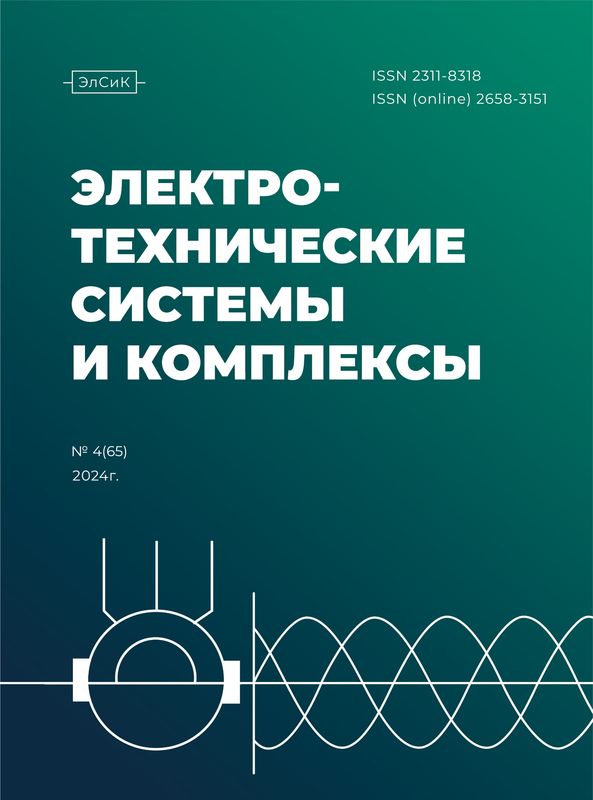Abstract
The article analyzes the relationship between power generation at hydropower plants (HPPs) and temperature changes for medium-term forecasting in the isolated power system of the Gorno-Badakhshan Autonomous Oblast (GBAO) of the Republic of Tajikistan. Improving the accuracy of forecasting will solve the problem of controlling water consumption, as well as optimize the generation of electricity at the HPP with the provision of reliable functioning of the power system. The solution of such problems is associated with a number of problems such as the lack of sufficient data, the uncertainty of power generation, the lack of regularity of one station operation and poorly reliable forecasting models. In the medium-term forecasting of electricity generation at HPPs, the seasonality of changes in water flow and inflow should be taken into account, especially in power systems with a high proportion of renewable energy sources, where temperature changes directly affect reserves and the possibility of regulation. The paper considers the problem of constructing a model for medium-term forecasting of electricity generation at HPPs taking into account temperature changes in isolated power systems. As a method of medium-term forecasting of power generation, an approach based on machine learning methods was chosen, which is characterized by a high degree of self-adaptation in case of sudden changes in weather conditions. A comparative study of such models as linear/polynomial regression with Tikhonov regularization, k-nearest neighbours, adaptive boosting of decision trees, adaptive boosting of linear models, random forest, extreme gradient boosting, multilayer perceptron. As a result of experimental and industrial calculations, the expediency of using a model based on adaptive boosting with linear regression (ABLR) has been proved.
Keywords
Ensemble models, medium-term forecasting, hydropower plant, power generation, isolated power system, temperature.
1. Sachdev H.S., Akella A.K., Kumar N. Analysis and evaluation of small hydropower plants: A bibliographical survey. Renewable and Sustainable Energy Reviews, 2015, vol. 51, pp. 1013-1022. doi: 10.1016/j.rser.2015.06.065
2. Kishore T.S., Patro E.R., Harish V.S., Haghighi A.T. A Comprehensive Study on the Recent Progress and Trends in Development of Small Hydropower Projects. Energies, 2021, vol. 14(10), art. id. 2882. doi: 10.3390/en14102882
3. Asanov M.S., Safaraliev M.Kh., Zhabudaev T.Zh., Asanova S.M., Kokin S.E., Dmitriev S.A., Obozova A.J., Ghulomzoda A.H. Algorithm for calculation and selection of micro hydropower plant taking into account hydrological parameters of small watercourses mountain rivers of Central Asia. Int. J. Hydrogen Energy, 2021, vol. 46, no. 75, pp. 37109-37119. doi: 10.1016/j.ijhydene.2021.08.160
4. Bayazıt Y., Bakış R., Koç C. A study on transformation of multi-purpose dams into pumped storage hydroelectric power plants by using GIS model. International Journal of Green Energy, 2020, pp. 1-11. doi: 10.1080/15435075.2020.1865362
5. Ghulomzoda A., Gulakhmadov A., Fishov A., Safaraliev M., Chen X., Rasulzoda K., Gulyamov K., Ahyoev J. Recloser-Based Decentralized Control of the Grid with Distributed Generation in the Lahsh District of the Rasht Grid in Tajikistan, Central Asia. Energies, 2020, vol. 13, no. 14. pp. 3673. doi: 10.3390/en13143673
6. Mayeda A.M., Boyd A.D. Factors influencing public perceptions of hydropower projects: A systematic literature review. Renewable and Sustainable Energy Reviews, 2020, vol. 121, art. id. 109713. doi: 10.1016/j.rser.2020.109713
7. Shichao X., Yangbo Ch., Lixue X., Chuan L. Baipenzhu Reservoir Inflow Flood Forecasting Based on a Distributed Hydrological Model. Water, 2021, vol. 13(3), art. id. 272. doi: 10.3390/w13030272
8. Banihabib M.E., Bandari R., Valipour M.Improving Daily Peak Flow Forecasts Using Hybrid Fourier-Series Autoregressive Integrated Moving Average and Recurrent Artificial Neural Network Models. AI. 2020, vol. 1(2), pp. 263-275. doi: 10.3390/ai1020017
9. Albo-Salih H., Mays L. Testing of an Optimization-Simulation Model for Real-Time Flood Operation of River-Reservoir Systems. Water, 2021, vol. 13, art id. 1207. doi: 10.3390/w13091207
10. Priyanka S., Machiwal D. Streamflow forecasting: overview of advances in data-driven techniques. Advances in Streamflow Forecasting, 2021, pp. 1-50. doi: 10.1016/B978-0-12-820673-7.00013-5
11. Oluwaseun O., Stretch D. Neural network modeling of hydrological systems: A review of implementation techniques. Natural Resource Modeling, 2019, vol. 32(1), art. id. 12189. doi: 10.1111/nrm.12189
12. Peña R., et al. Capacity estimation of a minihydro plant based on time series forecasting. Renewable Energy, 2009, vol. 34(5), pp. 1204-1209. doi: 10.1016/j.renene.2008.10.011
13. Li G., Liu C.-X., Liao S.-L., Cheng C.-T. Applying a Correlation Analysis Method to Long-Term Forecasting of Power Production at Small Hydropower Plants. Water, 2015, vol. 7(9), pp. 4806-4820. doi: 10.3390/w7094806
14. Wenjie Z., Jing G., Lu Ch., Jianzhong Zh., Junhong Zh., Dangwei W. Future hydropower generation prediction of large-scale reservoirs in the upper Yangtze River basin under climate change. Journal of Hydrology, 2020, vol. 588, art. id. 125013. doi: 10.1016/j.jhydrol.2020.125013
15. Gulomzoda A.Kh., Safaraliev M.Kh., Lyukhanov E.A. A Modified method for synchronizing a microgrid with an external isolated power system. Elektrotekhnicheskie sistemy i kompleksy [Electrotechnical Systems and Complexes], 2021, no. 3, pp. 72-80. doi: 10.18503/2311-8318-2021-3(52)-72-80 (In Russian)
16. Kirgizov A.K., Sultonov Sh.M., Kokin S.E., Safaraliev M.Kh. Algorithm for selecting compensating devices based on fuzzy logic. Politekhnicheskiy vestnik. Seriya: Inzhenernye issledovaniya [Polytechnic Bulletin. Series Engineering Research], 2018, no. 4 (44), pp.10-13. (In Russian)
17. Asanova S.M., Ahyoev J.S., Dmitriev S.A., Matrenin P.V., Safaraliev M.Kh. Development of models for power consumption medium-term forecasting in isolated power systems based on ensemble methods of machine learning. Izvestiya NTTS Edinoy energeticheskoy sistemy [Bulletin STC of the Unified Energy System], 2021, no. 1(84), pp. 32-39. (In Russian)
18. Antonenkov D.V., Matrenin P.V. Research of ensemble and neural network methods of machine learning in the problem of short-term forecasting of power consumption of mining enterprises. Elektrotekhnicheskie sistemy i kompleksy [Electrotechnical systems and complexes], 2021, no. 3(52), pp. 57-65. doi: 10.18503/2311-8318-2021-3(52)-57-65 (In Russian)
19. Chen T., Guestrin C. XGBoost: A Scalable Tree Boosting System. 2016, pp. 1-13. Available at: https://arxiv.org/abs/1603.02754. doi: 10.1145/2939672.2939785
20. Scikit-Learn. Machine learning in Python. Availiable at: https://scikit-learn.org (accessed 01 February 2022) (In Russian)










